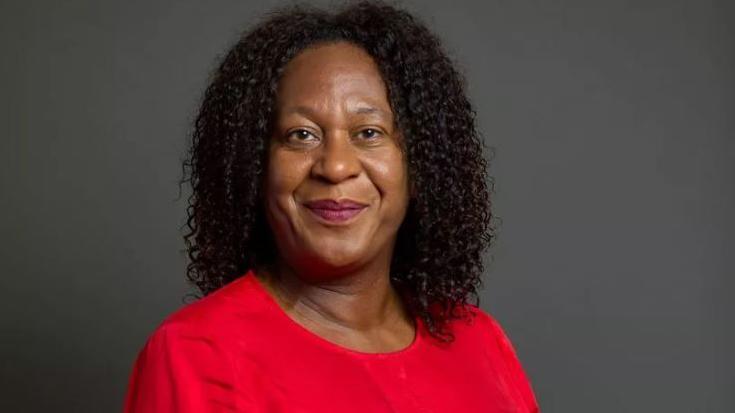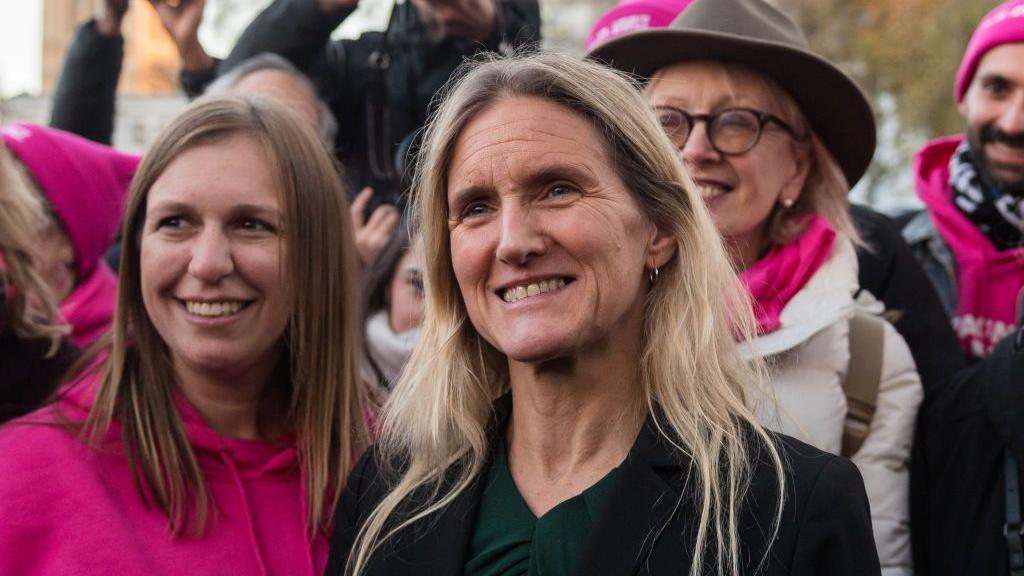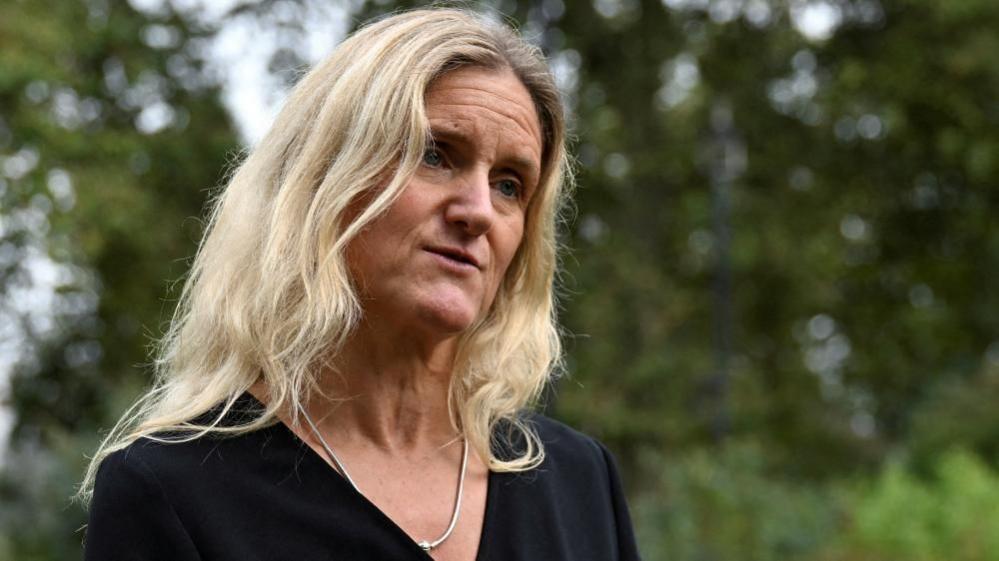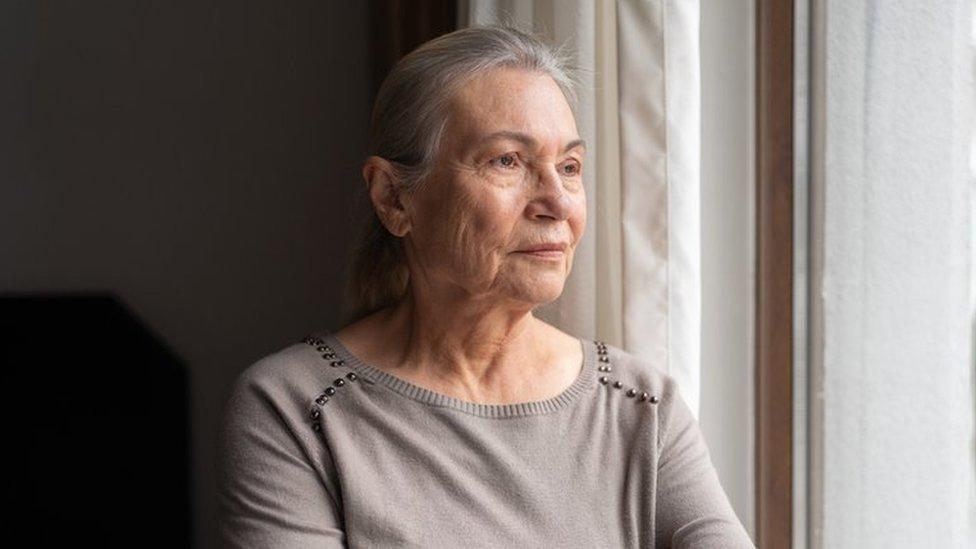Dying bill provokes enormous emotion, says MP

Juliet Campbell said she was looking for as many safeguards as possible
- Published
"I hadn't quite realised the enormity of it."
Just months after being elected as the new Labour MP for Broxtowe in Nottinghamshire, Juliet Campbell was selected for the committee responsible for scrutinising the assisted dying bill.
She has since received "hundreds and hundreds of emails" representing the "sheer volume of emotion" the issue provokes, with the opinion split evenly, she said.
Ahead of a third reading on 25 April, Campbell believes the bill still needs more safeguards and has so far voted against it, but its sponsor Kim Leadbeater believes it is now "even stronger, safer and more effective".

Kim Leadbeater has urged MPs to support the bill later this month
At present, laws throughout the UK prevent people from asking for medical help to die.
The Terminally Ill Adults (End of Life) Bill, external seeks to change this but debate has raged around ethical and practical considerations.
Introduced by Leadbeater, a Labour MP, who previously argued the law needed changing because some people "have a horrible, harrowing death", however good their end-of-life or palliative care is.
MPs backed proposals to legalise assisted dying in England and Wales at the bill's second reading in November 2024.
The historic vote saw 330 MPs support the bill, and 275 reject it.
Campbell was one of nine members of the committee who voted against the bill.
The 14 other MPs were supportive.
'Important changes'
The committee has spent two months going through the bill line by line, debating and voting on hundreds of amendments.
The process was gruelling - with several late night sittings - but it did result in several parts of the legislation being rewritten.
The requirement for a High Court judge to approve an assisted death was scrapped, after concerns were raised about capacity in the justice system.
Instead, a panel comprising a senior legal figure and experts such as psychiatrists and social workers would rule on each case.
Should the bill pass into law, it could now take up to four years to be fully implemented - double the timescale originally envisaged - to allow more time to set up training and systems for what would be an entirely new service.
However, Campbell, who put forward dozens of amendments herself, believes the legislation is still not ready.
"I am not sure that all of the safeguards that we would have liked to have seen have been implemented," she added.
She also said it was still unclear whether it would fall to the NHS or the private sector to administer assisted deaths.
"That's one of the bits of clarity that I would have liked to have seen in the bill itself," she added.
"An impact assessment would give us that information."
In a news conference earlier this week, Leadbeater said the committee had "spent hours and hours and hours on this work".
She added: "Colleagues have dedicated huge amounts of time and energy to this, and we've now got important changes to make the bill stronger."
Leadbeater urged MPs to back the bill again when it returns to the House of Commons later in the month.
"What worries me is, if the bill doesn't pass, the conversation ends, and that would be really dreadful for so many people, for so many reasons," she said.
Get in touch
Tell us which stories we should cover in Nottingham
Follow BBC Nottingham on Facebook, external, on X, external, or on Instagram, external. Send your story ideas to eastmidsnews@bbc.co.uk, external or via WhatsApp, external on 0808 100 2210.
- Published26 March

- Published29 November 2024

